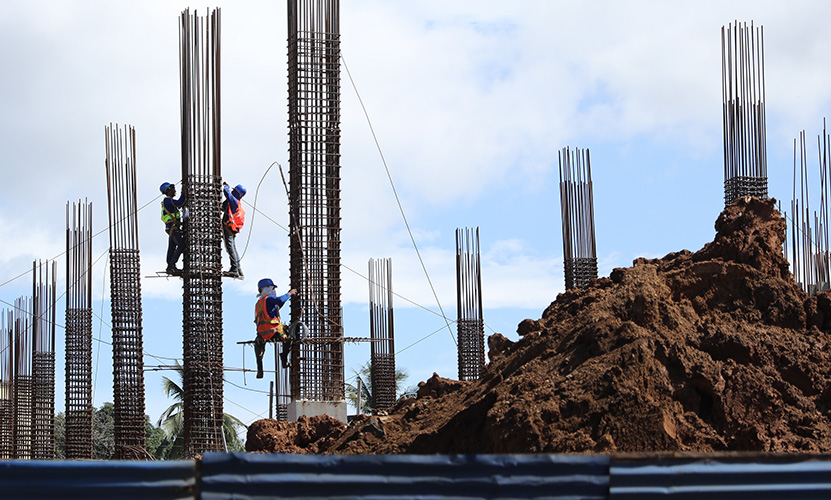
Senator Win Gatchalian is pushing for the amendment of the Foreign Investments Act (FIA) of 1991 in a bid to provide a renewed boost to the entry of foreign direct investments (FDI) into the country and stimulate job creation.
Senate Bill No. 2227, sponsored by Gatchalian, seeks to amend certain provisions of the FIA to “take advantage of global and regional economic dynamics” and help make the Philippines a more attractive investment destination.
“These amendments will result in a foreign investment regime that is more fine-tuned to the changing economic climate and its accompanying demands,” said Gatchalian, chair of the Senate Committee on Economic Affairs. “Our receptiveness to these changes may very well determine whether we can live up to our true economic potential or remain in the doldrums compared to our next-door neighbors.”
“We remain a relatively unattractive investment destination because our investment laws are less open and generally more inhibitory compared to those of our neighbors in the ASEAN,” Gatchalian added.
One of the amendments proposed under the bill is the updating of the FIA’s policy declaration to recognize advancements in technology and the importance of global and regional economic realities to the local economy.
The bill also seeks to amend Section 4 of the FIA to expressly exclude the practice of professions from the coverage of the law, thus emphasizing that the law governs only equity investments in the Philippines by non-Filipinos.
SBN 2227 mandates the National Economic and Development Authority (NEDA), in cooperation and consultation with the Board of Investments (BOI), the Department of Trade and Industry (DTI), the Securities and Exchange Commission (SEC), and other pertinent government agencies, to conduct an annual review of the country’s Foreign Investment Negative List (FINL) to ensure that the list is aligned with this policy.
Under the present set-up, the government releases the FINL – an enumeration of sectors where foreign investors can only exercise limited participation – every two years.
The bill also paves the way for the establishment of a web portal that will serve as a central database containing information about the country’s foreign investment laws, rules and regulations, and policies, including restrictions. The portal will be maintained by the Board of Investments in coordination with other relevant agencies.
Gatchalian lamented the low FDI accumulation figures recorded by the country in recent years, which saw the Philippines continue to lag behind many of its ASEAN peers as a result of the its relatively restrictive foreign investment laws and policies.
According to data from the World Bank, the Philippines’ FDI accumulation for the 2015-2017 period stood at US$23.98 billion, way below Singapore, which recorded US$208.48 billion. Indonesia ranked second in the region with US$45.79 billion, Vietnam third with US$35.5 billion, followed by Malaysia with US$32.84 billion. Only Thailand, which brought up the rear at US$19.78 billion, recorded a lower FDI accumulation than the Philippines.
The senator also noted that the Organization for Economic Cooperation and Development’s 2018 FDI Regulatory Restrictiveness Index listed the Philippines as one of the most restrictive countries when it comes to FDI rules.
Gatchalian sought to allay fears that the liberalized investment environment could be used by foreign investors to deprive Filipinos of the opportunity to work within the country.
“I filed a bill last week amending the Official Development Assistance (ODA) Act, which seeks to protect the interests of Filipino workers by prioritizing them for employment in development projects financed through ODA funds.” Gatchalian said.
Data from the International Monetary Fund’s 2018 World Economic Outlook showed that the country had the highest unemployment rate among the six large ASEAN markets last year, at 5.3%. In contrast, Thailand recorded an unemployment rate of 0.7%, followed by Singapore at 2.0%, Vietnam at 2.2%, Malaysia at 3.2%, and Indonesia at 5.2%.


